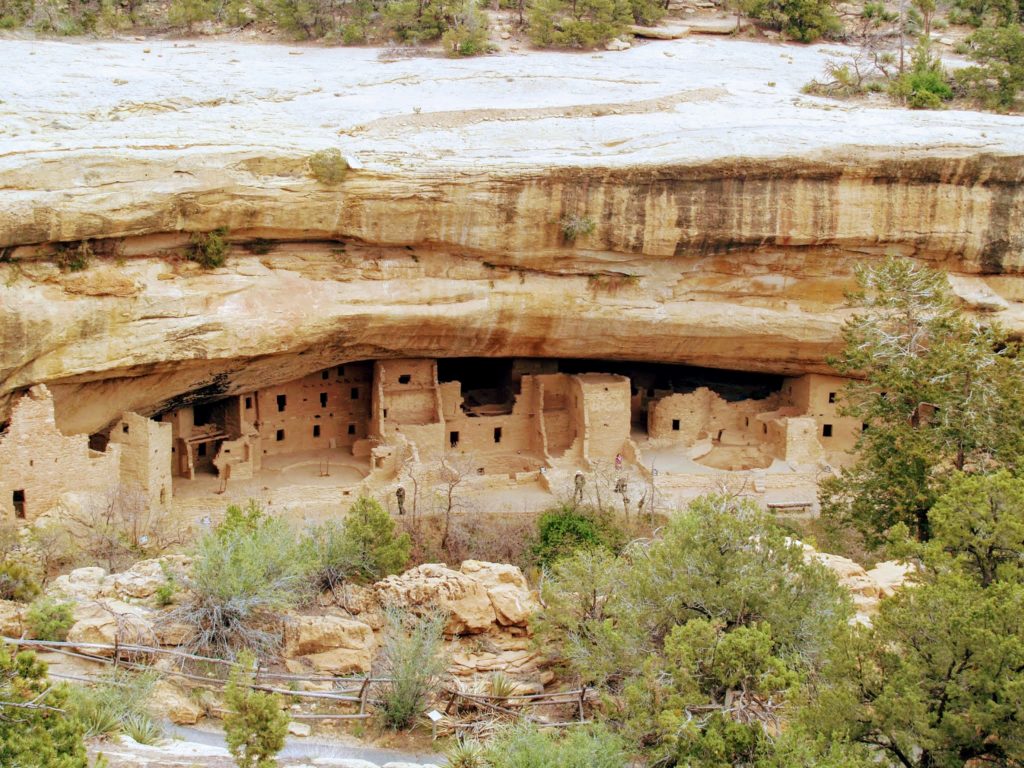Moment of truth
Isaiah 6: Every word I’ve ever spoken is tainted…words that corrupt and desecrate.
Isaiah’s first reaction to seeing the holiness of God isn’t reverence or ecstasy. Rather, it’s horror. In view of a holy God he realizes his own lack of holiness. When compared to his fellow citizens, Isaiah’s a good man, even a righteous man. However, when he finds himself in the presence of God he sees himself as he really is, and that vision brings him to his knees. Isaiah’s words are deeply personal and my reaction to this passage, if it’s honest, starts with me and not with what I perceive to be failure in others. Jesus touches on this in the Sermon on the Mount when he says, “Be perfect as your Father in heaven is perfect.” Also, I note that Isaiah doesn’t announce that he’s now going to commence a self-improvement campaign. Instead, it’s honest recognition of his sinful ways and deep sadness as he realizes just how broken his life is. Isaiah, in just a few words, says it all: “I’m doomed because everything about me, even my words, is unclean and unholy. Now that I’ve seen God I realize the depth of my lostness. In myself I see no hope whatsoever.” The hope of Isaiah isn’t found within himself. He knows it, and the Lord knows it.
Take Away: It’s only as we’re honest with ourselves and with the Lord that the Lord can begin transforming our lives.
Tag: repentance
Devotional on Isaiah
Like an eagle circling high above
Isaiah 32: Weep and grieve until the Spirit is poured out on us from above.
Isaiah is addressing the women of his society, warning them that Judgment is coming and telling them that when it comes their comfortable lives will be disrupted. The coming danger isn’t just that of invading armies but of crop failures resulting in famine in the land. Everything will be turned upside down on that day which Isaiah specifically says is just a little over a year away. With such a storm bearing down on them Isaiah says there’s just one thing to do: repent and seek God. The coming disaster isn’t some random event. It’s the Judgment of God. It’s not too late for them to change their ways and seek the Lord. Earlier, the prophet pictured God as a mighty eagle, circling high in the sky, not waiting to pounce upon some unwitting prey, but waiting to deliver. Now, he says that if sinning, God-rejecting people will repent of their sin the Lord will pour his Spirit out upon them from above. We often think of the prophets as having messages of only gloom and doom but that’s only a portion of their work. In this passage we see an abundant measure of hope for even the most God-rejecting life. To this day, the Lord waits for us to look up in repentance and trust that he might pour his Spirit out on our lives.
Take Away: Like a circling eagle, the Lord hovers over us, waiting for an opportunity to dish out abundant mercy.
Devotional on Isaiah
The journey home begins with this first step
Isaiah 50: It’s your sins that put you here, your wrongs that got you shipped out.
The Lord tells Israel that he didn’t “divorce” them and he didn’t just kick them out. They’re where they are because of their intentional rejection of him. Even when he reached out to them, they ignored him. The disaster didn’t come because he changed the rules or backed out of his promises to them. It’s their doing. Because of that, the road back, as it does for the prodigal son, starts with their coming to their senses and acknowledging their sin. There’s hope here, because there is, indeed, a way back; the possibility of restoration even after sin. It starts with admitting, “I’m a sinner.” If I think I’ll return to God on my terms I’m only fooling myself. In this passage the Lord proclaims, “I’m as powerful as ever.” Things don’t have to stay the same because God has the power to make things right. It’s a long road home for these who’ve been exiled to distant lands and that road starts with their repentance. That’s true for them, it’s true for the prodigal, and it’s true for me when my sins have separated me from God.
Take Away: Things don’t have to stay the same because he Lord has the power to make things right.
Devotional on Isaiah
Hope of restoration
Isaiah 57: I live in the high and holy places, but also with the low-spirited, the spirit crushed.
God is the Almighty and I’d better never forget it. His ways are higher than mine and he’s right at home in Eternity. This awesome God is a demanding God. He calls me to live in fellowship with himself and his standard for me is nothing short of holiness. If I rebel it’s not his purpose that is broken, but me. However, this God is not untouched by that brokenness. He not only sits on his throne way up in Heaven, but he also inhabits the world he created. When my sins have divorced me from the Lord and I begin to realize the awfulness of those sins I find that he’s been there, reaching out to me all the time. The same God, this high and towering Being, cares for me even in my ruined state. He longs to transform my “spirit-crushed” life into something wonderful and new. His language to me is filled with powerful and welcome words: healing, leading, comforting. As I reach up from the bottom, I realize that God has been there all the time, reaching down from the top.
Take Away: God is the God of Second Chances.
Devotional on Jeremiah
Which church would you attend?
Jeremiah 23: They preach…their “Nothing Bad Will Ever Happen to You” sermon.
Jeremiah isn’t the only preacher of his generation. In fact, he has plenty of competition from preachers who enjoy large followings and enthusiastic support. Folks love their positive, uplifting, and encouraging sermons. No doubt, these preachers find some really good texts that proclaim God’s love for and protection of his people. The problem is that their sermons are, in Jeremiah’s words, just so much “hot air.” The people in their congregations need to repent and return to God. The truth is that everything’s not going to turn out fine and bad things are coming, whether or not these preachers will admit it. Can’t you imagine a family getting ready to go to worship services? “Where are we going to church today, dear?” the wife asks. “I don’t know. Jeremiah’s preaching nearby, but you know he specializes in telling it like it is. I hear that the ‘Things are Great and Getting Better’ church has big things planned for today and they have a terrific praise band. Shall we go there?” So, where would I go to church? How entertainment oriented am I when it comes to worship? I’m not suggesting that “gloom and doom” is always God’s message while “happiness and security” is always just hot air. Still, I see here a reminder that there’s more to worship than a main course of an entertaining sermon with large helping of great music on the side.
Take Away: Sometimes God-directed preaching isn’t all that fun to hear.
Devotional on Jeremiah
The Lord, reaching out
Jeremiah 31: Everything in me cries out for him. Softly and tenderly I wait for him.
In this passage the tribe of Ephraim represents the people of Israel. Jeremiah imagines Israel humbly coming to the Lord, asking if it’s too late and wondering if the Lord can ever embrace her again. God’s answer is immediate and compassionate. The Lord says that that’s all he’s wanted to hear all along and that the strong medicine was administered not because he had stopped loving Israel but preciously because of his love. This great God of love has longed for his people to return to him and with great tenderness he waits to receive them back to himself. I can’t help but respond to this passage in a personal way. I’m moved by God’s compassion on, not only ancient Israel, but on the lost people of my day. When I’m in rebellion against God he longs for my return; reaching out to me, crying out in love. Today, I stand in awe of the mercy, grace, and compassion of God for a lost human race.
Take Away: God is love.
Devotional on Lamentations
Preach responsibility
Lamentations 2: They didn’t face you with your sin so that you could repent.
As Jeremiah deconstructs the fall of Judah for us he describes the failure of the preachers of his day. Even as Jeremiah faithfully proclaimed God’s word of condemnation on the nation, his competition described coming divine rescue. Jeremiah’s message called for a radical change of attitude and lifestyle. Their message was that everything was going to be just fine, that they were children of Abraham, and therefore, God had to keep his promises to him no matter what they did. Because of their success in convincing people of their mistaken theology, Jeremiah’s message was rejected and those who needed to repent never did so. I’m not writing today to put down some radio or TV preacher. To tell the truth I don’t listen to any of them enough to even know their core message. I do believe this, though: we preachers have a responsibility before God to call sinners to repentance. If all we do is share principles for a happy marriage, or tell parents how to raise well-adjusted kids, or outline how to get along with the boss we’re failing people. I’m not saying that there’s never a time and place for such sermons, but Jeremiah says the preachers of his day didn’t confront people with their sin and therefore, they never realized their need for repentance. Does this translate over to today?
Take Away: We have a responsibility before God to call sinners to repentance.
Devotional on Lamentations

Looking up from the bottom
Lamentations 5: Give us a fresh start.
The prayer I find near the conclusion of this book of laments is one that has been prayed many times through the centuries. Jeremiah describes for us the devastating loss his people have suffered remarking, “Our dances have turned into dirges.” In their miserable state they exclaim, “Would that we’d never sinned!” That’s another statement that has been said many times. As some unknown preacher said, “Sin will take you farther than you want to go.” How many people have found themselves at the bottom, crushed by the consequences of their own sin? For some reason we always think we’ll be the ones to get away with it, that we’ll beat the odds. It never happens and sooner or later we add our voice to the chorus lamenting, “Would that we’d never sinned!” It’s in that place, when everything seems hopeless that we can lift our faces to the God we’ve failed and pray, “Give us a fresh start.” Our God is the God of Second Chances. Even when I’ve messed my life up to the point that all is lost he can give me a fresh start. That isn’t to say that he’ll press the rewind button on my life. What’s done is done. However, he’ll do something just as meaningful: he’ll make me into a new person. When I’m weary of my sin and crushed by my failure, I can look to the God of Second Chances and ask him to give me a fresh start. The Lord delights in answering that prayer.
Take Away: God is the God of Second Chances.
Devotional on Ezekiel
Accepting fault, doing something about it
Ezekiel 18: The soul that sins is the soul that dies.
A common saying in Ezekiel’s day is that “the parents ate green apples and the children got a stomachache.” That saying describes the current plight of the people of Judah. Their nation has been defeated and many have been exiled far from home. They blame it all on their parents and consider themselves to be victims of the failure of others. Ezekiel says that isn’t so. While it’s true that their ancestors failed God, the current generation has plenty of failure of its own. Ezekiel wants them to understand that when a wicked person turns from his or her wicked ways that God is gracious and rich in forgiveness. God, he tells them, doesn’t hold a grudge. On the other hand, if a righteous person abandons that righteousness he or she stands guilty before God. Past righteousness doesn’t make a person immune from current failure and judgment. The bottom line is that the Lord will “judge each of you according to the way you live.” The spiritual principle here is that it’s our current relationship with God that really matters. Ezekiel’s advice is still good today. He says since it’s “right now” that counts, those who are living apart from God and blaming their parents (or someone else) for it need to “turn around…make a clean break” and “live!”
Take Away: It’s our current relationship with the Lord that really matters.
Devotional on Ezekiel
What pleases God?
Ezekiel 33: I take no pleasure from the death of the wicked.
I love this insight into the heart of the Lord. We Christians are sometimes guilty of making the Lord out to be angry and vengeful. Here I am, reading a book of the Bible that’s full of words of condemnation and judgment and finding as compassionate a word as I could ever find. God hates sin but he loves the sinner. For the Lord to blink at sin — to call it something less than what it is — would be for him to deny his own nature. Rather than do that, he does everything he can to call us from our sin and to remake us into a clean people. If God’s remedy for sin was to wipe out the sinners, well, I wouldn’t be writing this and you wouldn’t be reading it. Ezekiel’s ministry is to call sinners to repentance. Today, through Jesus Christ, that same call is heard. The thing that brings pleasure to God is not punishing sinners. Instead, it’s rescuing us from death to life. With God on our side like that, we have every reason to trust him and surrender to him.
Take Away: The Lord hates sin but he loves the sinner.
Devotional on Ezekiel
Good news for people who need a Second Chance
Ezekiel 33: None of his sins will be kept on the books.
Since Ezekiel’s mission throughout most of his ministry is to warn people of pending destruction, and since he is about as rough and tumble a guy as you’ll ever meet, his messages are generally not especially uplifting. He’s like a doctor with a poor bedside manner: he isn’t especially interested in dressing things up but for the good of his patient he tells it like it is. Still, as I journey through the book of Ezekiel, I find plenty of sunshine along with his gruffness. At one point he tells people that they can’t rely on past goodness to cover current sin. If even the most pious person turns from God’s ways to sin he or she will be judged not for their past, but their current life. However, there’s good news in flip side of that situation. If a person who’s living a sinful life hears Ezekiel’s hard message and decides to pay attention and straighten up there’s a real possibility of life. God will gladly give that individual a second chance. Now that’s a message for any day. The Lord loves it when sinners turn to him. He doesn’t hold our past against us and is more than willing to forgive sins and transform lives. That’s good news for every one of us who has made bad choices and wishes life had a rewind button. We can’t go back but by God’s grace we can go forward. If a person turns to God, Ezekiel tells us, “He’ll live.”
Take Away: We can’t go back but by the grace of the Lord we can go forward.
Devotional on Joel

Praying in catastrophes
Joel 2: And here’s why: God is kind of merciful.
The prophet sees the natural catastrophe of the locust infestation as a judgment of God. It may be that the Almighty manufactured these bugs specifically to cause the people to stop their march to wickedness. God is God and he has ability to do stuff like that. On the other hand, it may be that the locusts are just a natural phenomenon that God is using to get their attention. Either way this is all under his authority. Joel tells his people that in the face of all that’s happening it’s time for a national turn around. He calls for more than a surface makeover but a real change in which they return to God with their whole hearts. If they do that, Joel promises, they’ll find God to be kind and merciful and they might just see the Lord intervene to cancel the catastrophe that has them reeling. One response to personal disaster should be a reexamination of our lives. If things aren’t as they should be this is a good time to ask the Lord to forgive us and ask him to help us get our act together.
Take Away: One response to personal disaster should be a reexamination of our lives.
Devotional on Jonah
God’s man isn’t much like God
Jonah 4: Jonah was furious.
The heart of the book of Jonah isn’t the first part with the oft-repeated big fish story. Instead, it’s the last part. It’s here that we find the motor that drives the story. When the reluctant prophet gives in and goes to Nineveh he does so in fear, not that he’ll fail, but that he’ll succeed. Jonah is nationalistic to the core and he’d like nothing better than for the capital city of Israel’s enemy, Assyria, to be destroyed. Still, with all his failings, Jonah knows a thing or two about God. The priests and other religious leaders of his country may promote a doctrine of Israel having a corner on the Almighty, but Jonah understands that God has compassion on all people. Israel may be the chosen people but that means God wants to use them to bless all the nations on earth, not that God loves them and hates all others. When Jonah runs from God, refusing to go to Nineveh he does so because he understands these things. He understands them, but he doesn’t agree with them. Now that his mission to Nineveh is a success Jonah’s angry with the Lord, not only for sparing his enemies when they repent, but for using him to bring it to pass. In spite of his unique understanding of God, Jonah isn’t much like God at all.
Take Away: God is love.
Devotional on Jonah

Attitude adjustment
Jonah 4: Why can’t I likewise change what I feel about Nineveh?
Let’s see: one shade tree killed by a worm verses 120,000 poor ignorant people repenting and being saved from destruction. Which should receive the greatest response? It’s a no-brainer, right? Not for Jonah. He retreats a safe distance from Nineveh to watch the fireworks of its destruction. When the Lord provides a miraculous shade plant for him it calms him down and he feels good about things for the first time in days. Then, overnight, the plant’s dead and Jonah’s mood dies with it. At this point the Lord decides it’s time for this pitiful man to change his attitude. If the short life cycle of a shade plant can cause Jonah to go through such a mood swing doesn’t it make sense that the Almighty change his thinking about a city full of repentant people? Of course it does. Like Jonah, I tend to get all wound up about stuff that isn’t worth a hill of beans: getting my own way in some unimportant thing, or the World Series, or buying some new gadget. If my team wins, I’m in a good mood and if they don’t…well, I’m not a happy camper. Meanwhile, God is focused on people. He’s already judged sin, and he very much wants people to let him change their lives so he can change their eternity. I really need to get on the same page as God.
Take Away: The Lord is focused on people.
Devotional on Nahum

Why Nahum preaches to the wrong congregation
Nahum 3: You’re past the point of no return.
One hundred years earlier the reluctant prophet Jonah had been ordered to go and preach destruction in Nineveh. The result was repentance and God changing his mind about destroying them. Nahum isn’t instructed to go to Nineveh but he’s given a similar message of destruction. His sermons appear to be directed to Nineveh but his audience is Judah. One reason for these anti-Nineveh sermons being preached in Judah is that the people of God are more concerned about what Assyria and its capitol Nineveh is doing than they are with trusting the Lord. They need to be reminded that, even though they see Assyria as a mountain of power that God sees it as just another anthill. The second reason for this seeming “preaching to the wrong crowd” is what’s said in this verse. In Jonah’s day the Lord hoped to spare Nineveh. They were great sinners even then, but, according to the Lord, they were more ignorant than rebellious. Because of that, the Lord was more than willing to change his mind and spare them if they would but turn to him in repentance. Here in Nahum’s day that has changed. He preaches about a nation that has pushed God too far and, for them, judgment has come. Nahum preaches sermons against Nineveh for the sake of Judah. He doesn’t preach them in Nineveh because it’s too late for them to repent. I guess the lesson for today is that as long as God speaks to our hearts, even if what he says is guilt producing condemnation, there’s still hope for us. It’s when we no longer hear from him that it’s too late. Isaiah put it this way: “Seek the LORD while he may be found; call on him while he is near.” (Isaiah 55:6 )
Take Away: As long as God speaks to our hearts there’s still hope.
Devotional on Zephaniah

We don’t clean house to punish dust
Zephaniah 3: I’ll leave a core of people among you.
The prophet first turns his attention to other nations surrounding Judah. They’re not the chosen people, but they’ve refused the light they’ve been given. Because of that, the Day of Judgment that is such a driving force in Zephaniah’s preaching is coming to them too. When I read of Judgment in the Old Testament I sometimes come away thinking of God as punishing those who reject him. However, this passage takes me in a different direction. Zephaniah says that when God’s finished, he’ll leave a core of people who “will not do wrong.” If a person cleans house, wiping everything clean, they aren’t punishing the dust. Instead, they’re just cleaning things up like they ought to be. Through his prophets, the Lord cautions, warns, and pleads with people to repent and align themselves with his purpose for their lives. In the end, the Judgment that falls on those who refuse this patient call of the Lord is the result of their own refusal to connect to their Creator. I know that there’s a place to think about an angry God but I’m reminded today that a God who loves righteousness is bound by his own nature to take action when his creatures reject his righteousness. When the Lord’s finished, things will be drastically different and one of those changes will be that we’ll see core of previously unnoticed people still standing. “Blessed are the poor in spirit for theirs is the Kingdom of Heaven.”
Take Away: A God who loves righteous must, ultimately, deal decisively with sin.
Devotional on Zechariah

There’s a great day coming
Zechariah 12: I’ll pour a spirit of grace and prayer over them.
The prophet with a name similar to Zechariah is best known for his “Judgment Day” sermons. Zephaniah’s three chapters focus on that topic. Now Zechariah turns his prophetic gaze to “that day” (which is paraphrased in the Message “the Big Day”). Jerusalem, that city of peace, is going to be ground zero for a battle to end all battles. When it appears there’s no hope, God will take over its defense. He’ll not only destroy the attackers, but he’ll move on the hearts of his people, pouring a “spirit of grace and prayer” over them. In a moment of clarity, they’ll realize their Messiah came centuries earlier. They’ll weep as they realize that they rejected him. They’ll mourn as they remember how his life was taken, a spear thrust to the side being the final act of violence done to his body. This national act of repentance will result in God’s “washing away their sins.” As history winds down Israel will be restored as God’s chosen people. We Christians, according to the New Testament, have a place in all this. Paul says we’re like a branch from a wild olive tree that is grafted into the cultured one that has been lovingly cared for by the husbandman. Because of that, I have a stake in this promise and like Zechariah and Zephaniah I anticipate “the Big Day” promised in this passage.
Take Away: There’s a Great Day coming, a Great Day coming by and by.
Devotional on Malachi

Malachi 3: Return to me so I can return to you.
If my relationship with God is strained or even broken today there’s a remedy. When, like the Prodigal Son, I come to my senses, rise, and return to my Father I find that he’s been waiting for me all along. What a relief it is to know that the Lord doesn’t hold a grudge against me. Rather, he patiently reaches out to me, calling me to himself. When Malachi states this spiritual fact of life to his congregation, someone asks for more information on this “returning” business. Exactly how do they do that? The prophet has an answer ready. A sure sign that a person’s returning to God is honest repentance on their part. In Jesus’ parable, the Prodigal is honest with himself and with his father. He’s messed up and he wants to make things right. He knows he doesn’t deserve re-admittance into his father’s household as a son, so he’ll take what he can get. That, my friend, is honesty. In this passage, Malachi points out that they’ve been dishonest with God in the stewardship of their possessions. He tells them that, for them, honesty with God means admitting their failure in this matter. This business of bringing sick and blind animals for sacrifice has to be stopped, confessed, and made right. Their practice of shortchanging God with their tithes has to end and be corrected. That’s what repentance is all about: confession and change. Through his prophet, the Lord says, “If you’ll return to me in repentance, I’ll return to you and bless your life in wonderful ways.” When a nation as a whole makes things right with God, Malachi says, it’ll be voted “Happiest Nation” and be known as a “country of grace.” That’s a good place to live.
Take Away: A sure sign that a person’s returning to God is honest repentance on their part.
Devotional on Luke

A ruined dinner party
Luke 7: I forgive your sins.
It’s intended to be a formal dinner in the home of a community leader. However, some of the formality is waved off. After all, Simon thinks Jesus ought to be impressed and humbled that a common person like Jesus is even invited to the home of a Pharisee. Then, to Simon’s surprise this disgusting woman has managed to slip into the room. Some servant will pay the price for that! She ruins Simon’s nice dinner party. Not only is he scandalized that such a person would dare enter his very house, but she’s dominating the moment. With all this foolishness going on how can he properly impress his guests? Jesus is obviously uncomfortable with her groveling at his feet, but he’s clearly moved by her sorrow. Maybe Jesus doesn’t know her story? Its then that Jesus speaks first as a teacher and then as a Savior. This woman is overwhelmed by her sins. Simon has missed the point because he doesn’t see himself as a sinner. Jesus then turns his attention to this poor, grieving woman and says the greatest words she’s ever heard: “I forgive your sins.” Simon hears blasphemy, she hears salvation. In this story, do I best identify with Simon or with this miserable sinner?
Take Away: We tend to see ourselves as the “good people” in Gospel stories, maybe, though, we’re supposed to recognize ourselves as those who aren’t so good.
Devotional on Acts

Acts 2: Get out of this sick and stupid culture!
It’s the Day of Pentecost. Those in the Upper Room have received the Promise of the Father. The power of the Holy Spirit flows out of them and they proclaim the Good News of Jesus with authority they’ve never had before and in languages they’ve never spoken before. Thousands come running to see what’s happening and Peter preaches his Pentecost sermon. Good people hear this message and are alarmed that the Messiah has come, been executed, and has risen from the grave. Is it too late for them? Has the long awaited Messiah come and they missed the boat? Pleading, they ask, “So now what do we do?” Peter’s answer is this: “Change your life…turn to God…be baptized…receive the gift of the Holy Spirit.” A corrupt, Christ-denying culture has brought them to the brink of disaster. Their only hope, Peter says with Spirit-filled confidence, is to “get out of this sick and stupid culture.” This message of both warning and hope is still the one people need to hear today. Our culture of self and materialism is destroying our souls. We’re on the brink of eternal disaster. Our hope is in the resurrected Savior of the world. The message of God to this generation is the same as the one Peter gave to his so long ago: “Repent, turn to God, be baptized, receive the Holy Spirit.”
Take Away: There’s a way through to God and that Way is named Jesus
